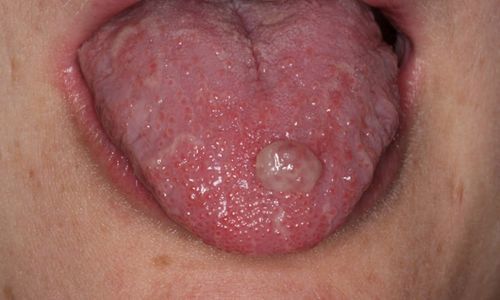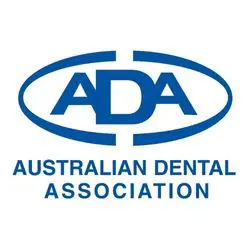
Key messages
- A general dental check-up is recommended for women who are considering becoming pregnant.
- Dental treatment is safe during pregnancy.
- Trimester two of pregnancy may be the most comfortable to visit your dentist.
- Pregnancy can impact your oral health due to changes in hormones and eating habits as well as vomiting and reflux.
Thinking about having a baby? Women (and couples) planning to have a baby are recommended to focus on their health. This includes dental health. Visit your dentist to make sure that your teeth and gums are healthy. If you need any dental treatment, it is best to have it done before becoming pregnant. This can help you to avoid problems during pregnancy.
Have you heard the saying, “you lose a tooth for every baby?"
This is a myth.
Is going to the dentist safe during pregnancy?
It is safe to have dental treatment during pregnancy. It is important to always tell your dentist if you are pregnant, even if you have not told anyone else. This is for you and your baby to get safe care. Your dentist cannot tell this information to anyone else.
Untreated tooth decay and gum disease can cause infections. These can be severe and a risk to you and your unborn baby.
Common concerns include the safety of local anaesthetic injections and dental x-rays.
Local anaesthetic injections are used to make the teeth and gums numb for dental treatment. They are safe to have during pregnancy and breastfeeding. Dental treatment should not be avoided for this reason.
Dental x-rays are often needed to help your dentist provide you with safe care. These x-rays can be taken during pregnancy. This is the advice from the Australian Radiation Protection and Nuclear Safety Agency. For some x-rays, you may be asked to wear a lead apron while the x-ray is taken. This apron will be placed over your chest and stomach.
When is the best time to see my dentist?
You can visit your dentist at any time of your pregnancy. Some women find it is most comfortable during the second trimester. This is the third, fourth and fifth months of pregnancy. Vomiting, nausea and gagging are more common in the first trimester. But they usually settle by the second trimester. The size of your baby may make laying back in a dental chair uncomfortable during your third trimester.

How can pregnancy effect my mouth?
Pregnancy does not cause poor dental health or damage to teeth. But changes in lifestyle, habits and body processes may increase your risk of dental problems during and after pregnancy.
Craving sweeter foods and drinks is common. But having too many sugary foods and drinks may increase your risk of developing tooth decay. Try to snack on low sugar foods such as fresh fruit, cheese, crackers, or plain yoghurt. When you have sugary snacks or drinks, rinse your mouth with water after. Rinsing your mouth with tap water is best because it contains fluoride which protects teeth.
Snacking frequently during the day can increase your risk of tooth decay. Try to have your sweet treat with main meals instead of between meals.
Gingivitis is a common type of gum disease. It is the body’s reaction to the bacteria that builds up on the teeth. The gums may become red, swollen and bleed easily.
During pregnancy, changes in hormones can make the gums more sensitive to the bacteria in the mouth. This can make it easier for the gums to become inflamed. If you are caring for your teeth and gums well but your gums continue to bleed, check with your dentist.
Severe gum disease, called periodontitis, can also impact your pregnancy. Periodontitis during pregnancy has been linked to early births, low birth weight babies and pre-eclampsia.
Vomiting and reflux are common during pregnancy. These actions cause stomach acids to come up into the mouth. These acids are very strong and can damage your teeth. If the stomach acid covers the teeth too often, it can wear away the surface of your teeth. This is called dental erosion or tooth erosion.
The below advice can help you to protect your teeth from vomiting or reflux.
- Do not brush your teeth straight after vomiting or reflux.
- Wait one hour before brushing your teeth.
- While waiting to brush, have a drink of water, rub some fluoride toothpaste on your teeth using your finger or rinse your mouth with an alcohol-free fluoride mouthwash. It is safe to leave the toothpaste on your teeth as this will help to protect them for longer.
- If you are out and about, chewing sugar-free gum is an option. This can help your mouth to make more saliva to help wash the acids from the mouth.
The back of your mouth may be sensitive. This may make you gag when brushing. This can make it more difficult to clean your teeth.
Here are some tips if you are having trouble with gagging.
- Use a toothbrush with a small head. You may want to try a children’s toothbrush.
- Focus on brushing your teeth. Close your eyes, breathe slowly through your nose, and use a very gentle, tooth brushing technique.
- If you start to gag, stop brushing, and wait a while before finishing.
- Wait to brush your teeth later in the day if you experience sickness in the morning.
It is important to speak to your dentist if you find any changes in your mouth.
One example is a pyogenic granuloma. This is also called a pregnancy tumour. It is a red, lumpy growth that can develop in the mouth during pregnancy.

Can I whiten my teeth while I am pregnant?
Teeth whitening treatment is not recommended for when you are pregnant or breastfeeding. There is not any evidence that teeth whitening is dangerous for pregnant women, but there also is not any evidence that it is safe. Therefore, it is best to avoid it.
If you are thinking about using a whitening toothpaste during pregnancy or breastfeeding, it is best to get advice from your doctor or dentist first.
Listen to Watch Your Mouth
Listen to the Australian Dental Association's podcast Watch Your Mouth to hear more about pregnancy and oral health. Available on Apple Podcasts and Spotify.


